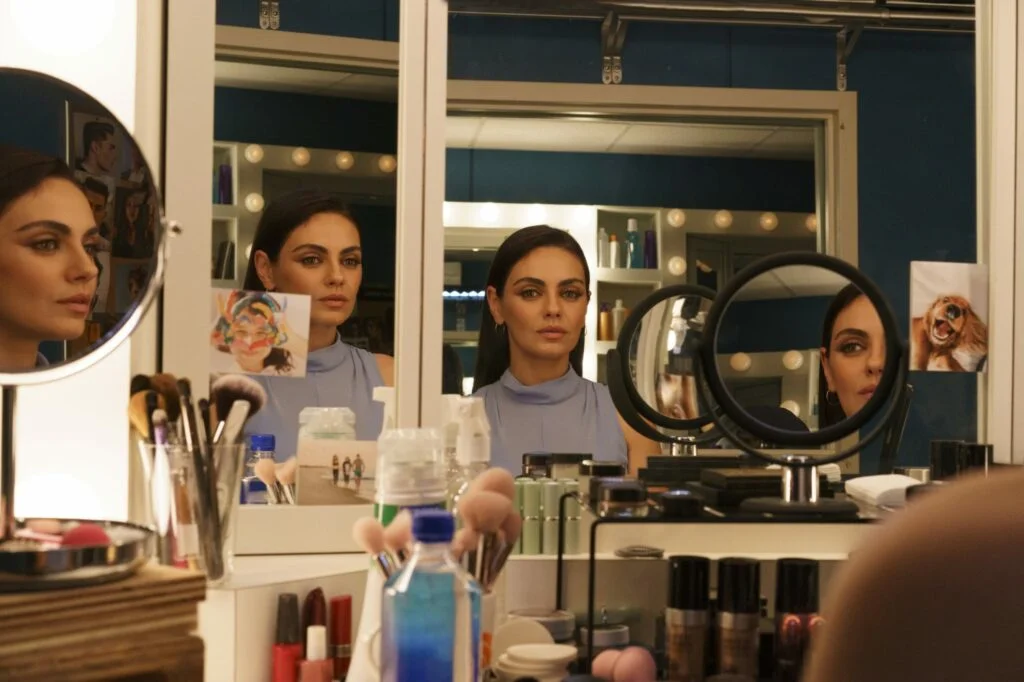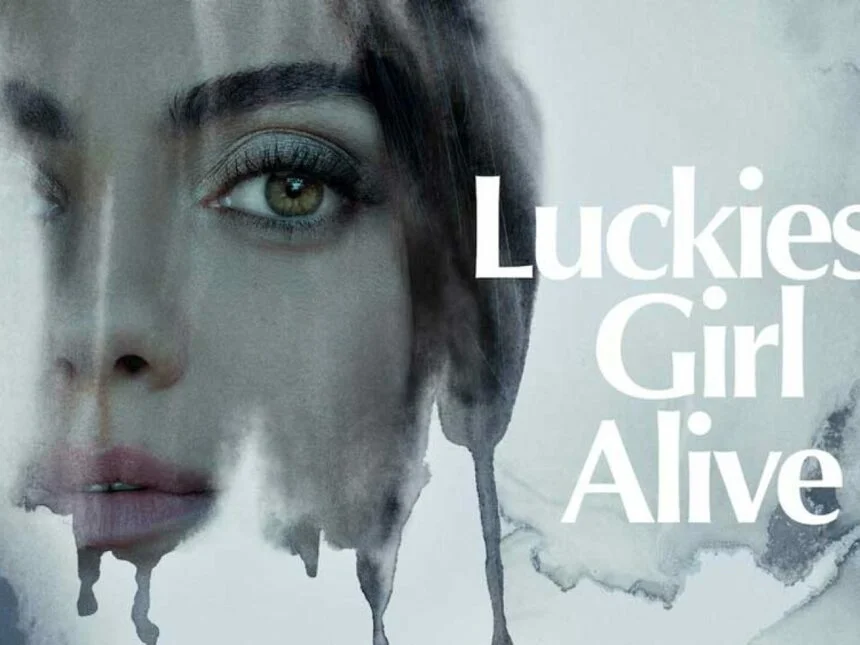Stained glass windows may be seen in Ani FaNelli (Mila Kunis)’s high school, the exclusive and distinguished Bradley School in suburban Philadelphia. She is on edge as she discusses a local school shooting that occurred twenty years ago with an independent documentary filmmaker.
The director informs her, “You’re lucky to have a mother who got you a lawyer and supported you. Not everyone has that.”
Ani remains silent as she thinks back to a time when her mother didn’t accept her story of what had happened. Her mother hisses, “You disgust me. You are not the daughter I raised.”
She returns to the present. “Hmm. Yes. Very lucky,” she replies, hardly managing to hold back her anger and pain. “The luckiest girl alive is in this room.”
On Friday, the Netflix original film Luckiest Girl Alive, based on the same-named 2015 novel, will be available. Although the story’s ending has changed, its powerful main theme remains.
After being released in 2015, the mystery book Luckiest Girl Alive by author Jessica Knoll enjoyed tremendous success, spending four months on the best-seller lists and selling more than 450,000 copies.
The novel is mostly fictitious and is written in thefirst-personn narrative. It portrays the phoenix-like rising and reinvention of Ani Fanelli, formerly known as TifAni, from the tragic ashes of her teenage years.

“The first instinct is to dismiss Ani as vain and vapid,” Knoll told the New York Times. But if we reward women for displaying their whole spectrum of humanity, flaws, and all, and if we give their challenges weight, we open the door to the potential that their defects and tales might connect us, inspire us, and move us just like those of men.
Similar to Gillian Flynn’s Gone Girl, which was published three years earlier, the book was less concerned with how likable its protagonist was than with her reality. In the same way, as Gone Girl dissects crime, gender, and class, Luckiest Girl Alive reconstructs femininity via a contemporary lens.
In Knoll’s outstanding debut book, “One Woman’s Carefully Orchestrated, Perfect Life Slowly Cracks to Reveal a Dark Underbelly,” according to Publishers Weekly. The author’s talent at drawing the reader in from the first page and laying the stage for an engrossing read as the secrets are disclosed is what makes this book unique.
Although the novel is fictional, author Jessica Knoll based some of it on her own experiences; this was a mystery until a year after the book’s publication.
Ani is repeatedly raped by three different classmates in Luckiest Girl Alive before the shooting, which all three males deny doing. Ani finds it extremely difficult to disclose the atrocities (later, her mother denies this fact as well.)
What I Know, an essay by Knoll for the online feminist publication Lenny Letter was published in March 2016. It discussed how Ani’s gang rape was based on her own traumatic experience when she was 15 years old.

According to Knoll’s writing,
My rage is carbon monoxide, tied to agony, humiliation, and hurt, rendering them impotent. You’d never know how angry I am unless you met me. I occasionally have the same wind-up doll feeling as Ani. I’ll tell you anything you want to hear if you turn my key. On cue, I’ll smile. My rage has no flavor, no color, and no odor. It is completely toxic.
Ani recites these things practically word for word in the film, spitting them out when she finally faces one of her rapists. She yells, “Do you know the difference between me and someone like you, Dean?”
“I’m like carbon monoxide when I’m angry. It has no flavor, color, or aroma, and it is wholly poisonous. But just to me. You see, I only lash out at myself when I am angry,” she said.
Following the publication of the article, people flooded social media with expressions of support and gratitude to Knoll for coming out. The author’s grief inspired the revealing details of the rape scenario, even though she had not personally experienced a school shooting.
The New York Times quoted Knoll as saying,
I was so conditioned to not talk about it that it didn’t even occur to me to be forthcoming. I want to give people the impression that they don’t have to be embarrassed about it and that they can talk about it.
It’s not usually the case for authors when their work gets optioned, but Knoll was inspired to adapt the novel herself because of the liberty of telling her story. But there’s one crucial area where the movie and the book diverge: the ending.

Ani accepts a job at the New York Times Magazine, publishes an essay similar to the one in Lenny Letter (but this time in the magazine), and uses the subway—a method of transportation that previously gave her PTSD—after she ultimately breaks off her engagement to her fiancé, a sign of the rich upper crust she fought so hard to adapt into.
She is surrounded on the subway by the female voices that seem to be the commuters surrounding her on the train, commenting on her article.
One of them says, “I was likewise abused by a man I believed was a friend. Hearing your story gives me hope that one day I will be able to tell mine as well.”
On Good Morning America, the 28-year-old shares her story and is asked about the essay. As Ani explains,
I’m hearing from women who have never shared their stories, from ladies who have carried this terrible thing with them alone for 38 years. I just hope that no one ever has to do that again. I hope that people would feel driven to share their tales, to talk about what happened to them, and to know that they have nothing to be embarrassed about.
When asked about the changes to the adaption, Knoll told Entertainment Weekly that it was “very meta” and that it was a fake narrative with a fictional character, but that “there are even more things that are inspired by my real life. I appreciate how we looked at the year that followed my writing the book and writing my essay, as well as the reaction to it and going on a TV show to talk about it.”
While Mila Kunis, who plays Ani with a haunted tenacity, did help Knoll rewrite the ending of the movie to make it more accurate to her real story, Knoll did so with her support. Together with the author, the actor shaped the ending to have a strong sense of community.
“I am aware that this movie’s ending is divisive, which is what I believe makes it so compelling. Not everyone will see this movie in the same way since it’s not generic,” according to Kunis in an interview with Entertainment Weekly. “I battled so hard to keep it in, even though a lot of people didn’t like it. Because this battle was so strong, I’m incredibly happy that we prevailed.”












